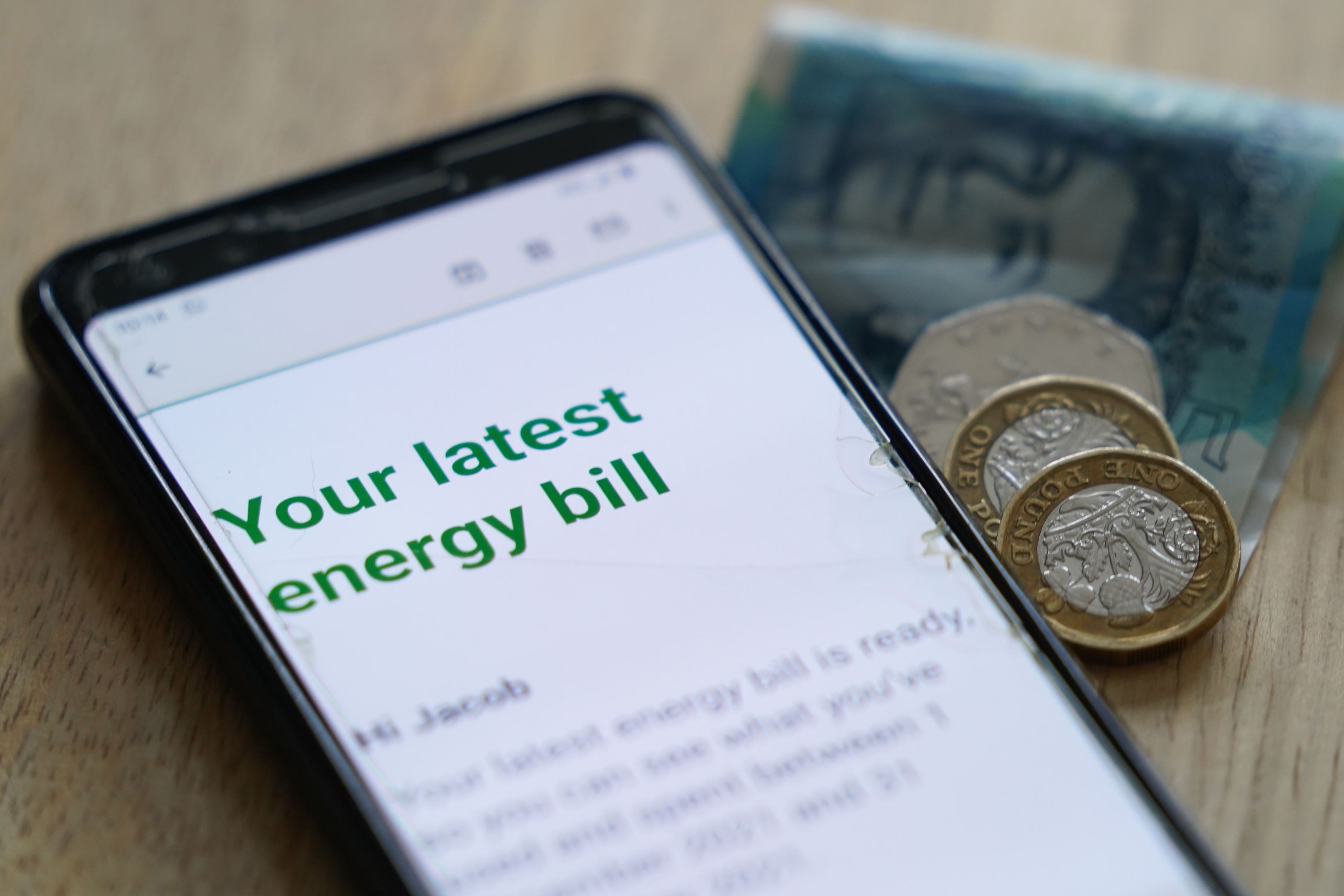Energy bills to rise despite estimated reduction to Ofgem price cap – analysts
Ofgem is expected to announce on Monday it will drop its cap on the amount energy suppliers are able to charge by around £1,000.

Your support helps us to tell the story
From reproductive rights to climate change to Big Tech, The Independent is on the ground when the story is developing. Whether it's investigating the financials of Elon Musk's pro-Trump PAC or producing our latest documentary, 'The A Word', which shines a light on the American women fighting for reproductive rights, we know how important it is to parse out the facts from the messaging.
At such a critical moment in US history, we need reporters on the ground. Your donation allows us to keep sending journalists to speak to both sides of the story.
The Independent is trusted by Americans across the entire political spectrum. And unlike many other quality news outlets, we choose not to lock Americans out of our reporting and analysis with paywalls. We believe quality journalism should be available to everyone, paid for by those who can afford it.
Your support makes all the difference.Energy bills will rise by an average of £500 a year despite an expected reduction in Ofgem’s price cap, analysts expect.
The energy regulator is expected to announce on Monday that it will drop its cap on the amount energy suppliers are able to charge by around £1,000 to £3,295, effective from April 1, according to the latest forecast from energy consultancy Cornwall Insight.
The energy price cap sets a maximum price that energy suppliers can charge consumers for each kilowatt hour (kWh) of energy they use. How much individual households pay depends on how much energy they use.
However, customers will pay about 20% more on their bills – approximately £500 – as the Government’s additional support in the form of the Energy Price Guarantee (EPG) only partially protects consumers from paying the full price cap.
The EPG limits the amount that domestic customers pay to 34p per kilowatt hour (kWh) for electricity and 10.3p per kWh for gas – which works out at £2,500 per year for the average household – with the Government picking up the difference between Ofgem’s price cap and the EPG.
This support is set to become less generous from the beginning of April, rising to an average bill of £3,000.
When the upcoming end of the £400 energy rebate scheme – paid in six instalments of £66 and £67 a month – is factored in, the energy cost for households will increase even more.
Ofgem’s price cap is currently set at £4,279 per year for the average household, meaning the Government has probably been paying about £1,779 per year to energy suppliers on average for every household they serve between September and March.
The predicted fall of the Ofgem price cap to £3,295, and the rise of the energy price guarantee level to £3,000, means the Government will be paying just £295 per household per year from April to June.
Cornwall Insight said it expects the price cap to fall further, to £2,153 in July and then hit £2,161 from October.
While tumbling cap projections are a positive, unfortunately already-stretched households will be seeing little benefit before July
This will be well below the price guarantee, so will feed through to lower bills for customers and reduce the Government’s part of the bill to £0.
Even these bills are around double where the price cap had been before the energy crisis.
Dr Craig Lowrey, principal consultant at Cornwall Insight, said: “Regrettably, the forecast for April looks set to leave the price cap above the increased Energy Price Guarantee level, meaning average annual consumer bills will effectively jump by 20% (£500).
“However, this is before we take into account the end of the £400 energy rebate scheme in March, meaning that the cost of energy for households will increase by even more.
“While tumbling cap projections are a positive, unfortunately already-stretched households will be seeing little benefit before July.
“While prices under the cap remain considerably higher than historic norms, the combination of falling wholesale prices and an increase in the EPG could see the return of competitive tariffs, and with it the chance for consumers to take back some control over their energy bills.”